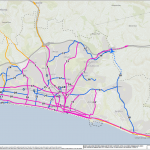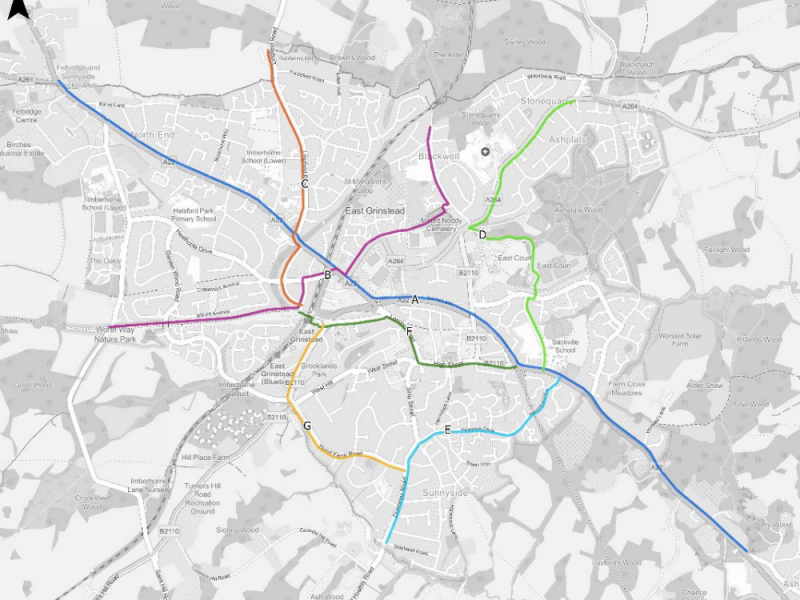As part of a nationwide £7 billion investment into public transport, Sussex authorities have been awarded £86.4 million. This money has been provisionally allocated to be spent on measures outlined in the Bus Service Improvement Plans (BSIP). Measures in the BSIPs range from fare reductions, to improved busses and infrastructure changes.
East Sussex was awarded the most at £41.4 million, whilst Brighton & Hove has been allocated £27.9 million and West Sussex £17.4 million. Before any of this money is spent, it has to be approved by the Department for Transport.
Measures outlined in the BSIPs
Each Authority has a separate BSIP, however some of their objectives do align to each others, such as better interoperability fare systems between different operators throughout the county. In general the BSIPs aim to increase passenger numbers, improve reliability, reduce journey times & reduce emissions.
Brighton & Hove’s BSIP which was approved last year suggests for trial red routes along Lewes Road & Valley Gardens. The most ambitious plan is for a BRT (Bus Rapid Transit) system along the A259 corridor, the council has spent £30,000 for an ongoing feasibility study into this, and this new funding could pay towards its business case and further administrative works for it. Improvements along the A23 are also suggested
In West Sussex the BSIP outlines that bus priority measures should be implemented on the A259 at a few locations around Chichester to Littlehampton. Bus priority and bus gates in other towns in West Sussex along with camera enforcement of bus lanes and no parking restrictions at all junctions on bus routes. They also plan to upgrade 35 junctions throughout the country which prioritises busses, especially when they are behind schedule.
East Sussex’s BSIP includes Bus Priority measures along the A259, A22 & A2290



